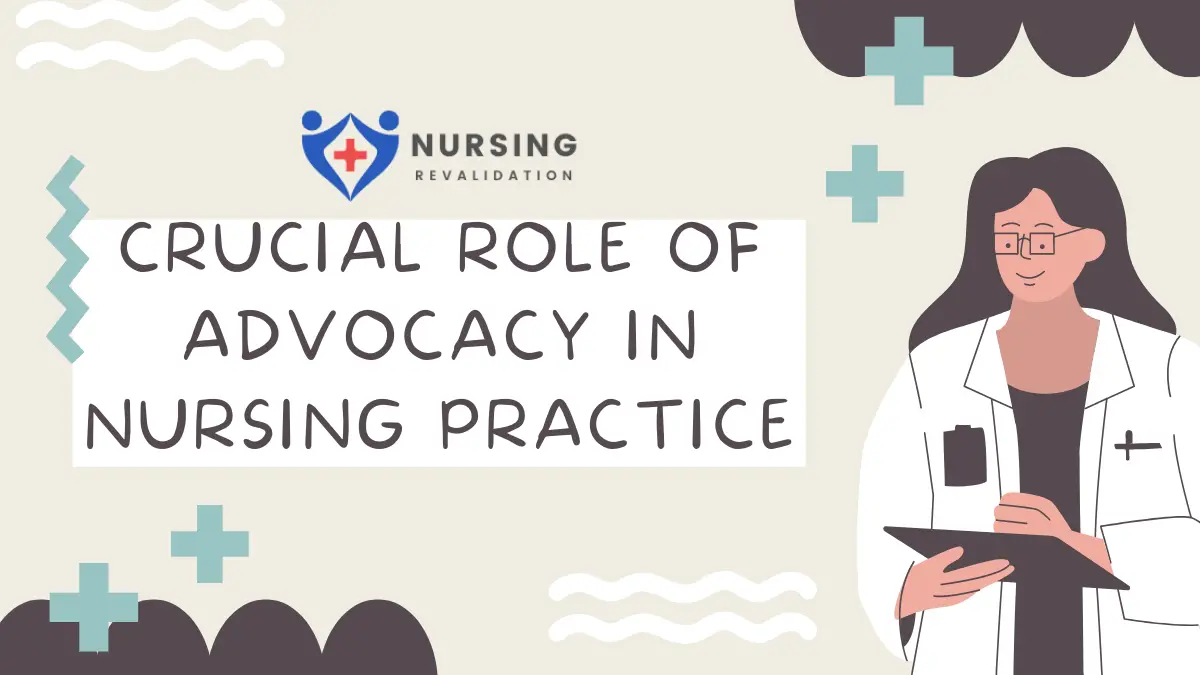In the intricate tapestry of healthcare, nurses stand as frontline advocates for patients, bridging the gap between medical professionals and those in need of care. Advocacy in nursing practice is not merely a role; it’s a fundamental ethos that underpins the entire healthcare system. In this comprehensive guide, we delve deep into the importance of advocacy in nursing practice, exploring its significance, challenges, and transformative impact on patient outcomes.
Understanding Advocacy in Nursing
Definition and Scope Advocacy in nursing refers to the proactive support and protection of patients’ rights, needs, and preferences within the healthcare system. It encompasses a wide range of activities, including but not limited to, ensuring informed consent, safeguarding patient confidentiality, promoting healthcare equity, and voicing concerns about patient safety.
Historical Context The roots of nursing advocacy can be traced back to the pioneering work of figures like Florence Nightingale, who not only revolutionized nursing care but also advocated for sanitation reforms and improved healthcare infrastructure. Since then, advocacy has become an integral component of modern nursing practice, evolving to address the complexities of contemporary healthcare challenges.
Table: Key Elements of Nursing Advocacy
| Element | Description |
|---|---|
| Patient Empowerment | Providing patients with information, resources, and support to make informed decisions about their health. |
| Policy Advocacy | Advocating for evidence-based practices, equitable access to care, and improvements in healthcare delivery at institutional and policy levels. |
| Interprofessional Collaboration | Collaborating with multidisciplinary teams to ensure comprehensive, holistic care that addresses patients’ physical, emotional, and social needs. |
| Enhanced Communication | Fostering open, transparent communication between patients, families, and healthcare providers to promote shared decision-making. |
| Improved Safety and Quality of Care | Advocating for the implementation of best practices, adherence to safety protocols, and timely interventions to prevent medical errors. |
| Promotion of Health Equity | Addressing disparities in access to care and social determinants of health to promote health equity for all populations. |
The Pillars of Nursing Advocacy
Nursing advocacy rests on three fundamental pillars:
- Patient Empowerment: Nurses empower patients by providing them with the information, resources, and support they need to make informed decisions about their health. This involves educating patients about their conditions, treatment options, and rights within the healthcare system.
- Policy Advocacy: Nurses play a crucial role in shaping healthcare policies at institutional, local, and national levels. By advocating for evidence-based practices, equitable access to care, and improvements in healthcare delivery, nurses contribute to the overall health and well-being of communities.
- Interprofessional Collaboration: Effective advocacy often requires collaboration across multidisciplinary teams. Nurses collaborate with physicians, social workers, therapists, and other healthcare professionals to ensure that patients receive comprehensive, holistic care that addresses their physical, emotional, and social needs.
The Impact of Advocacy on Patient Outcomes
Enhanced Communication Effective advocacy fosters open, transparent communication between patients, their families, and healthcare providers. By actively listening to patients’ concerns, clarifying medical information, and facilitating discussions about treatment options, nurses promote shared decision-making and improve patient satisfaction.
Improved Safety and Quality of Care Advocacy plays a critical role in promoting patient safety and preventing medical errors. Nurses advocate for the implementation of best practices, adherence to safety protocols, and timely interventions to mitigate risks and ensure optimal outcomes. Additionally, nurses serve as vigilant watchdogs, identifying potential hazards and advocating for systemic changes to enhance the overall quality of care.
Promotion of Health Equity In an increasingly diverse and complex healthcare landscape, advocacy is essential for promoting health equity and addressing disparities in access to care. Nurses advocate for underserved populations, marginalized communities, and vulnerable individuals, striving to eliminate barriers to healthcare access and address social determinants of health.
Challenges and Ethical Considerations
Navigating Ethical Dilemmas Advocacy in nursing practice is not without its challenges and ethical dilemmas. Nurses may encounter situations where advocating for a patient’s best interests conflicts with institutional policies, resource constraints, or professional boundaries. In such cases, nurses must navigate these ethical dilemmas with integrity, balancing their duty to the patient with broader considerations of justice and beneficence.
Overcoming Barriers to Advocacy Several barriers can impede effective advocacy in nursing practice, including hierarchical structures within healthcare organizations, time constraints, and competing priorities. Nurses must actively identify and address these barriers, advocating for supportive work environments, professional autonomy, and resources that enable them to fulfill their advocacy role effectively.
Conclusion
In conclusion, advocacy is not just a role that nurses play; it’s a fundamental principle that drives compassionate, patient-centered care. By embracing advocacy in nursing practice, nurses can empower patients, improve outcomes, and advance the broader goals of healthcare equity and social justice. As we navigate the complexities of modern healthcare, let us remember that advocacy is not merely a choice but an ethical imperative—one that defines the essence of nursing and shapes the future of healthcare.


